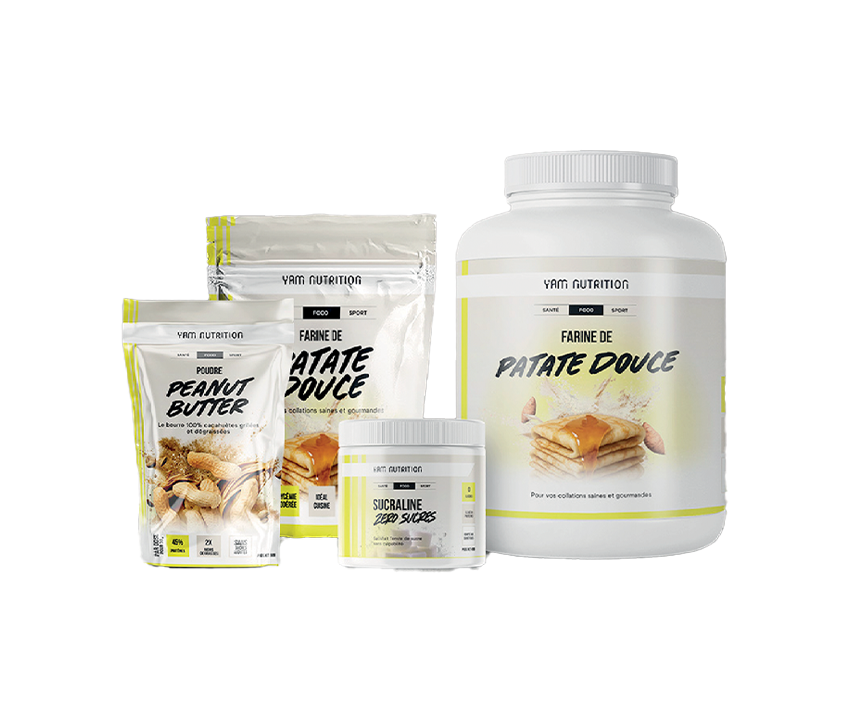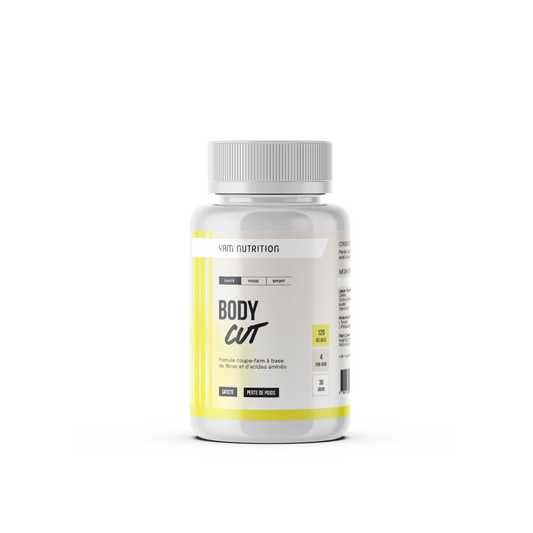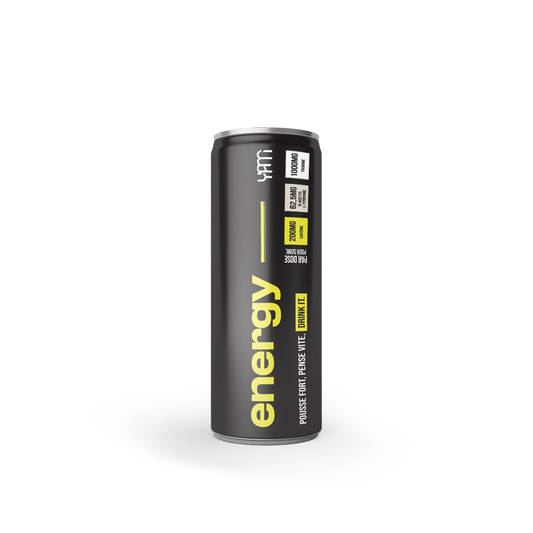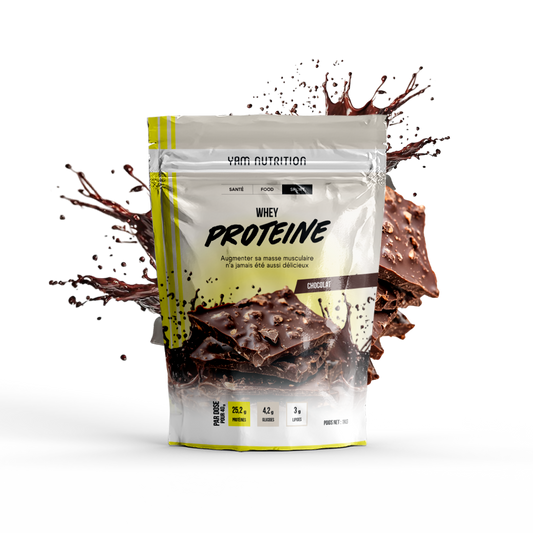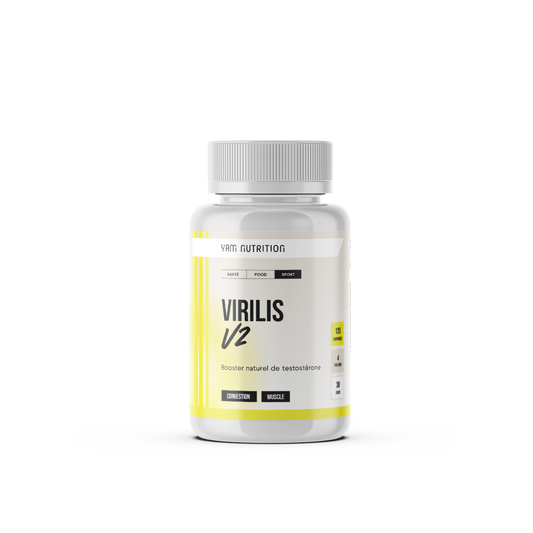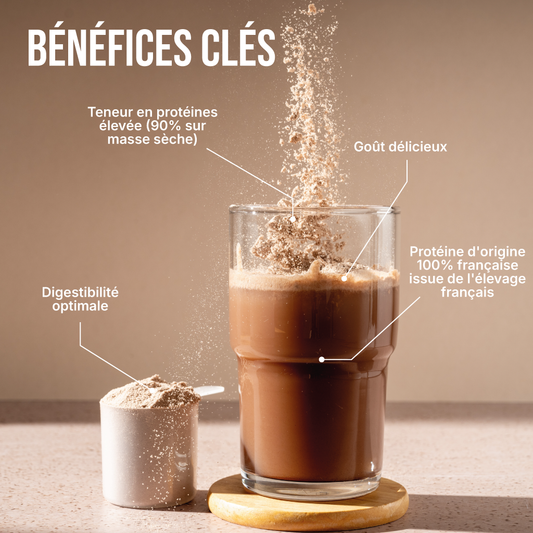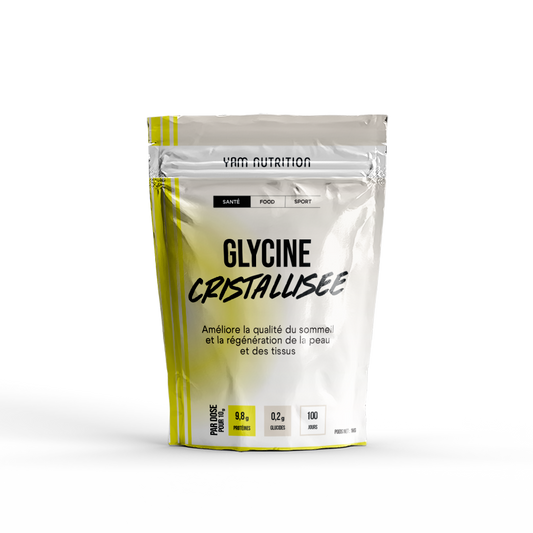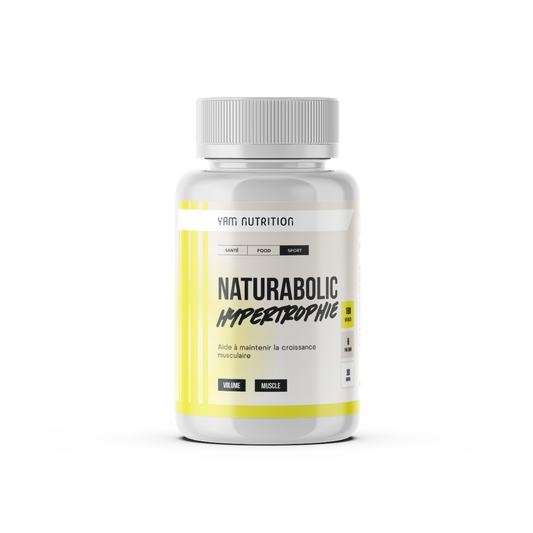What is the role of vitamins B1, B2, B3, B6 and B12 in energy release and muscle growth?

Sommaire
- Thiamine, or vitamin B1, a micronutrient essential for glucose and amino acid metabolism
- Riboflavin, vitamin B2, an essential molecule for FAD, flavin adenine dinucleotide
- Vitamin B3, niacin or niacinamide, the precursor of the coenzyme NAD+ and cellular energy
- Vitamin B6, an essential cofactor in the metabolism of amino acids and hormones
- Vitamin B12, or cobalamin, the great forgotten element of cellular health and energy
- Methylcobalamin is a form of vitamin B12 with higher bioavailability
Practicing bodybuilding in order to obtain results in terms of muscle mass and strength is based on physiological principles too often forgotten by athletes. However, we are not going to give you a biochemistry course here without interest for your sports practice. It is rather a question of reminding you of some important notions on the basic processes which result in the release of cellular energy . In order to break down food into basic macromolecules such as proteins, carbohydrates and fats, enzymes are present to ensure this task. However, the biological mechanisms leading to the release of pure energy through ATP (adenosine triphosphate) and other complex processes require enzymes but also coenzymes. The latter will be found from vitamins for example.
Many micronutrients serve as the basis for the synthesis of coenzymes essential to our body. For example, we have vitamin B2 (riboflavin) for the synthesis of FAD or niacinamide for nicotinamide riboside (NR) or nicotinamide mononucleotide (NMN), the precursors of NAD+. This is an enzyme essential for the synthesis of cellular energy and for life itself. Without the coenzyme NAD+, you could count to 20 before dropping dead! Clearly, B vitamins have an essential role to play in muscle energy release.
Caffeine without the crash thanks to NewCaff-75™ technology An appetite suppressant to help you stick to your diet without giving in by regulating your appetite. The energy drink 2.5x more caffeinated than average Building muscle mass has never been so delicious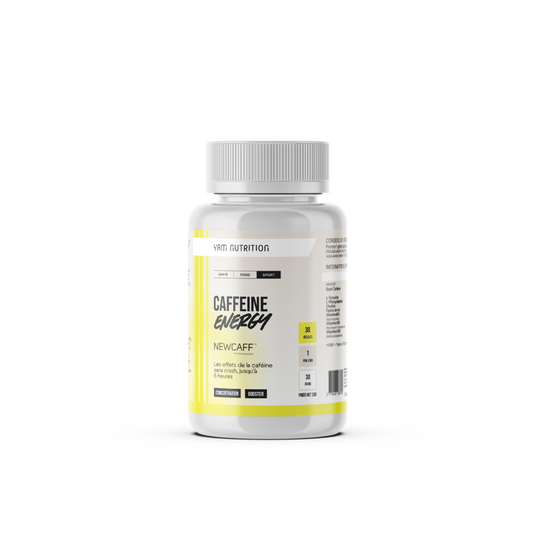
Caffeine Energy
29,90 €
Sale price
25,40 €
Body Cut Appetite Suppressant
Sale price
29,90 €
YAM Energy Drink
Sale price
From 3,00 €
Whey Protein
Sale price
From 37,90 €
B vitamins, enzyme precursors essential for cellular energy synthesis
There are many B vitamins. These include vitamins B1 (thiamine), B2 (riboflavin), B3 (niacin or niacinamide), B5 (pantothenic acid), B6 (pyridoxine), and B8 (or B7), which is biotin. Vitamin B9 (folic acid, a vitamin from the folate group) and B12 (cobalamin) come in several forms, such as cyanocobalamin, methylcobalamin, and others. In this article, we will discuss the role of thiamine, riboflavin, niacin, pyridoxine, and cobalamin in muscle energy synthesis.
Thiamine, or vitamin B1, a micronutrient essential for glucose and amino acid metabolism
Vitamin B1 or thiamine, although it is very little known among athletes, is one of the most important B vitamins for your body. All B vitamins are essential, but thiamine is particularly important. Without it, it would be impossible for us to generate energy from glucose. At the cellular level, our famous glucose is first broken down into pyruvate. Then, vitamin B1 is metabolized into a cofactor called TPP (thiamine pyrophosphate), allowing the transformation of pyruvate into acetyl CoA, which will then follow the Krebs cycle to generate several other molecules, including ATP.
Researchers call thiamine the spark of life because it triggers the cascade of processes that leads to ATP (or Adenosine Triphosphate) and the release of energy. In other words, thiamine is a vitamin cofactor located at the forefront of energy synthesis in our cellular mitochondria. Similarly, thiamine is involved in the metabolism of BCAAs , branched-chain amino acids , allowing their breakdown into energy. It is especially involved in reducing the risk of toxic waste formation from glucose metabolism. It thus protects the nervous system, given that the brain is a large consumer of glucose.
Riboflavin, vitamin B2, an essential molecule for FAD, flavin adenine dinucleotide
Vitamin B2, also called riboflavin, allows us to synthesize FAD, flavin adenine dinucleotide and flavin mononucleotide (FMN). These are simply the two essential cofactors for flavoproteins . Electron carriers that are involved in the respiratory chain and energy release.
Vitamin B3, niacin or niacinamide, the precursor of the coenzyme NAD+ and cellular energy
Vitamin B3, in the form of niacin or its homologue, niacinamide, is essential for the synthesis of the enzyme cofactor NAD+. Without this essential cofactor, life as we know it would not be possible. NAD+ ( nicotinamide adenine dinucleotide ) and NADP, NAD+ bound to a phosphate, are involved as coenzymes in the Krebs cycle chain but also at the start of the transformation of glucose to pyruvate. Today, NAD+ precursor molecules such as nicotinamide riboside (NR) or its cousin mononucleotide (NMN) are considered one of the most promising avenues for maintaining cellular NAD+ and energy levels in order to prolong health during aging of the body.
Vitamin B6, an essential cofactor in the metabolism of amino acids and hormones
Here too, we see that this vitamin is an absolute for our health. Vitamin B6 comes in several forms. The most well-known to the general public is pyridoxine, but this is not the active form of this vitamin. The active form is pyridoxal 5-phosphate. Pyridoxine is also involved in multiple biochemical reactions at the heart of the body, particularly that of amino acids. To this end, it acts as an enzymatic cofactor necessary for the processes of transamination, decarboxylation, and deamination. Vitamin B6 is also essential for the breakdown of muscle glycogen into glucose and energy synthesis . Finally, it is also involved in the synthesis of serotonin, a hormone essential for balance and well-being.
Vitamin B12, or cobalamin, the great forgotten element of cellular health and energy
Cobalamin is also considered an enzymatic cofactor involved in the metabolism of a large number of cells, nerves, or red blood cells. It is also involved in the synthesis of our DNA and its epigenetic regulation. As you know, there are many molecular forms of this B vitamin. Cyanocobalamin is the most common and most sold vitamin B12, but it is also not the highest quality. If you can, avoid this vitamin form by consuming multivitamins that contain better forms of methyl- or adenosylcobalamin. These molecular forms will be much better assimilated by your body and your cells.
Methylcobalamin is a form of vitamin B12 with higher bioavailability
The methylcobalamin form is the most commonly found in our cells. In mitochondria, adenosylcobalamin is the active form of this vitamin. It is involved in normal mitochondrial function. Folic acid (or vitamin B9) is also metabolically related to cobalamin because it needs the latter to do its job. Folic acid and cobalamin work together, particularly on cellular processes related to blood anemia, maintaining muscle strength , resistance to fatigue, concentration, and the immune system (white blood cells).
As we've seen in this article, B vitamins should never be overlooked by strength and bodybuilding enthusiasts. They'll help you release energy from your energy sources to build more muscle faster...
YAM Nutrition
Eric MALLET
Spécialiste en Nutrition Sportive
